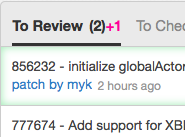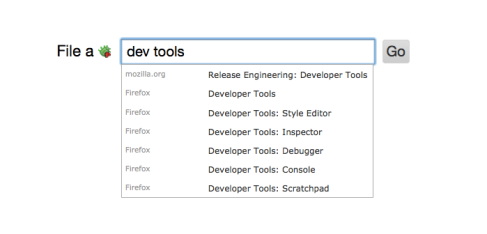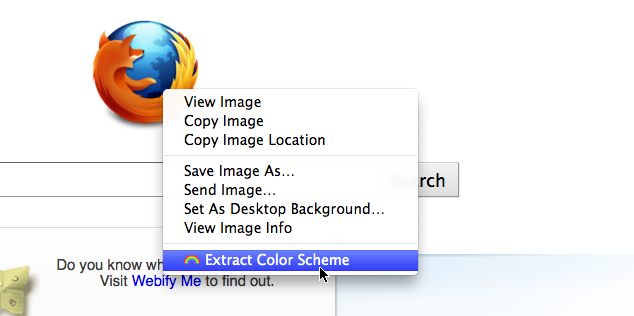A few months ago I created Bugzilla Todos out of a need to see all the Bugzilla-related things I had to do in one place, and also quickly see what other people had to do (for example, when picking someone to review a patch).
It’s a basic UI that shows your review and flag requests, patches to check in, unfulfilled requests you made of other people, and assigned bugs. I just added a few features that I desperately wanted for it:
Live Updates: Bztodos now checks Bugzilla periodically for any new requests, and shows notifications of these new requests:
It shows the count of the new requests in the favicon (thanks to the tinycon library), and highlights new items in the list. It checks every 15 mintues. I hope that’s okay with Mozilla’s Bugzilla.
Remember Last Tab: When you visit the page again, the last tab you had selected will be open by default.
Keyboard shortcuts: Visit the ‘Review’ tab by simply typing ‘r’ when the page is focused. The shortcuts are based on the first letter of the tab, and ‘p’ for the ‘Respond’ tab.
Suggestions?
The Bugzilla queries used to fetch these queues are always in need of tweaking for unforseen situations. Please file an issue if the wrong items are showing up in a tab, and especially if something is missing. Also file if there are any suggestions at all.














